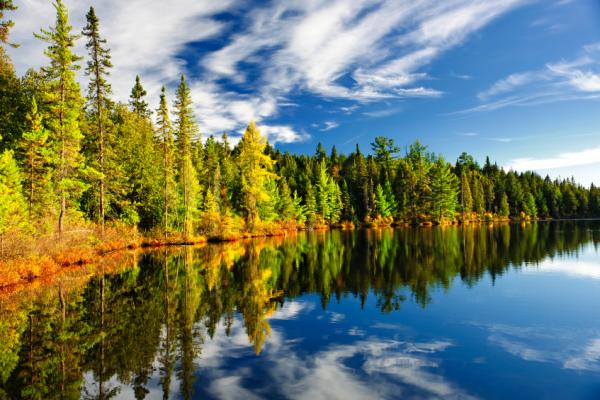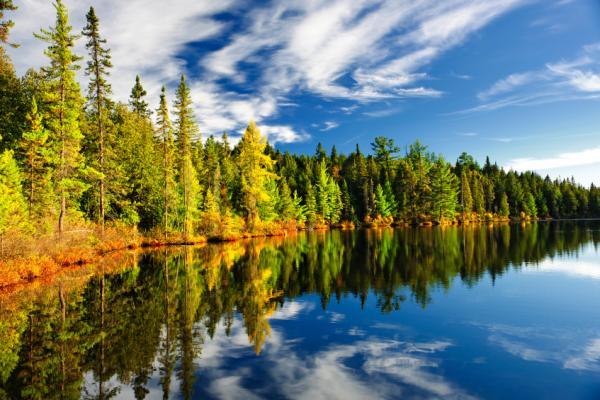
Dailycsr.com – 08 December 2015 – The first week of December has been a “critical” one in terms of climate change related issues, as climate leaders from all over the world gathered at Paris to take part in the COP21.
They came together to discuss and negotiate about the important role of forests which contribute “within the broader climate debate”. They sought to arrive at a “shared vision for industries, governments, civil society and consumers” so as to put a pause to our ongoing deforestation trends and “reverse the demise of the world’s natural forests”.
Moreover, Ian Lifshitz informs:
“That demise has been in the public eye in recent months as a result of forest fires in many parts of the world, which have been exacerbated by one of the worst El Niños since 1950. The destruction of land, the displacement of people and rise of grave health problems, which have affected many, serve to highlight the need for an urgent, regional and multi-stakeholder approach to tackling this problem”.
As per him, it is an opportunity that must be seized at the COP21 so as to introduce implementation of “strong policies” in order to ensure no repetition of “recent events”. Even, Aida Greenbury of Asia Pulp & Paper need to participate in the forefront of the conversation’s wave whereby turning our collective focus on the “areas to save the world’s forests”, says Lifshitz.
In order to bring in this effort of conservation, a “multi-stakeholder” landscape approach is the way to go, according to him. In fact, APP has also adopted the same philosophy in Indonesia. Furthermore, a link needs to be established between the private and public sectors so that the “fundamental issues” that need addressing can be dealt with through effective land management which also helps in “economic development” though in a sustainable manner.
Preserving forest, also means taking into consideration of peat lands, which “provide a vital carbon sponge”. Protecting them will “significantly reduce greenhouse gas emissions”. Therefore, the world needs to establish the best shared “practices in peatland management” as its next target in this regard.
Nevertheless, amid everything, another “important piece of the puzzle” is to have ‘access to finance’. It is a yet another vital issue to revamp the financial institutions’ money lending criteria, in order to “drive positive changes along the forestry supply chain”. In fact, Lifshitz invites individuals, companies and smallholders alike to take part in this endeavour as all are essential “economic actors”:
“We need to work toward a global system where trees are worth more standing and growing than they are chopped down. We fully support the development of initiatives such as REDD+ and the Green Climate Fund, but we must recognize that to date, these have failed to yield concrete results on the ground. Billions have been pledged, but only a fraction has been spent, and that fraction has made too little difference in countries like Indonesia. So we would urge governments in particular to look at their financing mechanisms for emerging economies and work out how we can put them to use in a transparent, accountable and effective way, including by working through the private sector”.
References:
http://www.sustainablebrands.com/
They came together to discuss and negotiate about the important role of forests which contribute “within the broader climate debate”. They sought to arrive at a “shared vision for industries, governments, civil society and consumers” so as to put a pause to our ongoing deforestation trends and “reverse the demise of the world’s natural forests”.
Moreover, Ian Lifshitz informs:
“That demise has been in the public eye in recent months as a result of forest fires in many parts of the world, which have been exacerbated by one of the worst El Niños since 1950. The destruction of land, the displacement of people and rise of grave health problems, which have affected many, serve to highlight the need for an urgent, regional and multi-stakeholder approach to tackling this problem”.
As per him, it is an opportunity that must be seized at the COP21 so as to introduce implementation of “strong policies” in order to ensure no repetition of “recent events”. Even, Aida Greenbury of Asia Pulp & Paper need to participate in the forefront of the conversation’s wave whereby turning our collective focus on the “areas to save the world’s forests”, says Lifshitz.
In order to bring in this effort of conservation, a “multi-stakeholder” landscape approach is the way to go, according to him. In fact, APP has also adopted the same philosophy in Indonesia. Furthermore, a link needs to be established between the private and public sectors so that the “fundamental issues” that need addressing can be dealt with through effective land management which also helps in “economic development” though in a sustainable manner.
Preserving forest, also means taking into consideration of peat lands, which “provide a vital carbon sponge”. Protecting them will “significantly reduce greenhouse gas emissions”. Therefore, the world needs to establish the best shared “practices in peatland management” as its next target in this regard.
Nevertheless, amid everything, another “important piece of the puzzle” is to have ‘access to finance’. It is a yet another vital issue to revamp the financial institutions’ money lending criteria, in order to “drive positive changes along the forestry supply chain”. In fact, Lifshitz invites individuals, companies and smallholders alike to take part in this endeavour as all are essential “economic actors”:
“We need to work toward a global system where trees are worth more standing and growing than they are chopped down. We fully support the development of initiatives such as REDD+ and the Green Climate Fund, but we must recognize that to date, these have failed to yield concrete results on the ground. Billions have been pledged, but only a fraction has been spent, and that fraction has made too little difference in countries like Indonesia. So we would urge governments in particular to look at their financing mechanisms for emerging economies and work out how we can put them to use in a transparent, accountable and effective way, including by working through the private sector”.
References:
http://www.sustainablebrands.com/


 Protecting World’s Forest Heritage Is An Important Task Before The COP21 Leaders
Protecting World’s Forest Heritage Is An Important Task Before The COP21 Leaders




 Companies
Companies